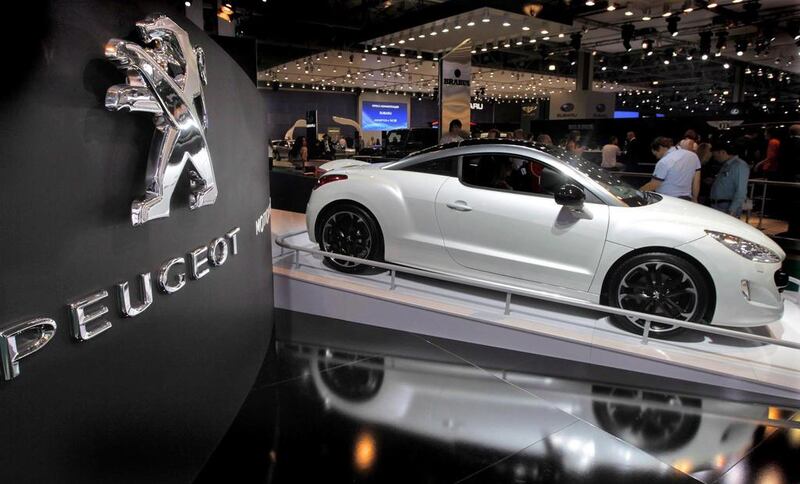PSA Group agreed to buy General Motors’ Opel unit in a transaction valued at €2.2 billion (Dh8.56bn), creating Europe’s second-largest car maker in a bid to better compete in the region’s saturated market.
PSA will pay €1.3bn for Ruesselsheim, Germany-based Opel and its UK nameplate Vauxhall, with the rest for the financing unit, which is being evenly split with BNP Paribas, GM and the Paris-based maker of Peugeot and Citroën vehicles said. The combination of the two car makers is expected to generate annual savings of €1.7bn by 2026, through combining development, sharing investment in factories and purchasing. Implementing the savings measures will cost about €1.6bn.
GM, which has owned Opel for almost 90 years, is cutting ties after the division missed a target to break even in 2016, contributing to losses that have totaled about US$9bn since 2009. PSA is betting that adding Opel’s approximately 1.2 million in annual deliveries will solidify its own turnaround by spreading the costs for developing new vehicles across a larger network. Job and production cuts are likely as the two companies offer a similar slate of mass-market cars from high-cost locations in Germany, France and the UK.
“We are confident that the Opel/Vauxhall turnaround will significantly accelerate with our support,” PSA the chief executive Carlos Tavares said, adding that Opel is expected to generate an operating profit margin of 2 per cent by 2020 and 6 per cent by 2026. “Having already created together winning products for the European market, we know that Opel/Vauxhall is the right partner.”
For GM, the deal continues efforts to shed underperforming assets and doesn’t come without cost. The U.S. automaker will take a non-cash charge of $4bn to $4.5bn related to the transaction, which is expected to close by the end of the year.
GM is on the hook for much of Opel’s pension obligations and will pay PSA €3bn to settle certain retirement plans. Still, the deal will free up about $2bn in cash, which GM plans to use for share buybacks, according to the statement.
PSA will pay about €1.13bn in cash for Opel and the French car maker’s share of acquiring the financing unit. An additional €650m will be financed by issuing to GM warrants in PSA shares, which can be exercised after five years. The two companies will also be aligned through an ongoing agreement for Opel to supply its Australian Holden unit as well as the Buick brand with certain models.
The deal would reinstate PSA as Europe’s second-biggest car maker after Volkswagen, pushing it past Renault following a steady decline in market share in recent years. After streamlining operations following a 2014 bailout by the French state and Dongfeng Motor, Mr Tavares is shifting focus to growth. His vision for a combination of PSA and Opel is to create a “ European champion” by slashing costs, combining development efforts and exploiting the appeal of German engineering.
With the addition of Opel, PSA is set control 16 per cent of the European car market, putting it behind only Volkswagen’s 24 per cent. The deal is the second run at linking the two car makers after savings from a purchasing and development cooperation project fell short of expectations, prompting Detroit-based GM to sell its 7 per cent stake in its French counterpart in 2013.
Still, that cooperation is now starting to pay off. In February, Opel unveiled the new Crossland X compact sport utility vehicle, which shares underpinnings with PSA’s Citroen C3 hatchback. A larger Opel S4x4 is set to follow later this year, which will be built at a PSA facility in France.
At Opel, Mr Tavares will seek to replicate the turnaround he engineered at PSA, including cutting jobs, freezing pay and eliminating slow-selling, unprofitable models. The French company went from net losses starting in 2012 to profit in 2015, and generated €2.7bn in cash in 2016. This year, for the first time since 2011, the company will pay a dividend.
* Bloomberg
business@thenational.ae
Follow The National's Business section on Twitter





